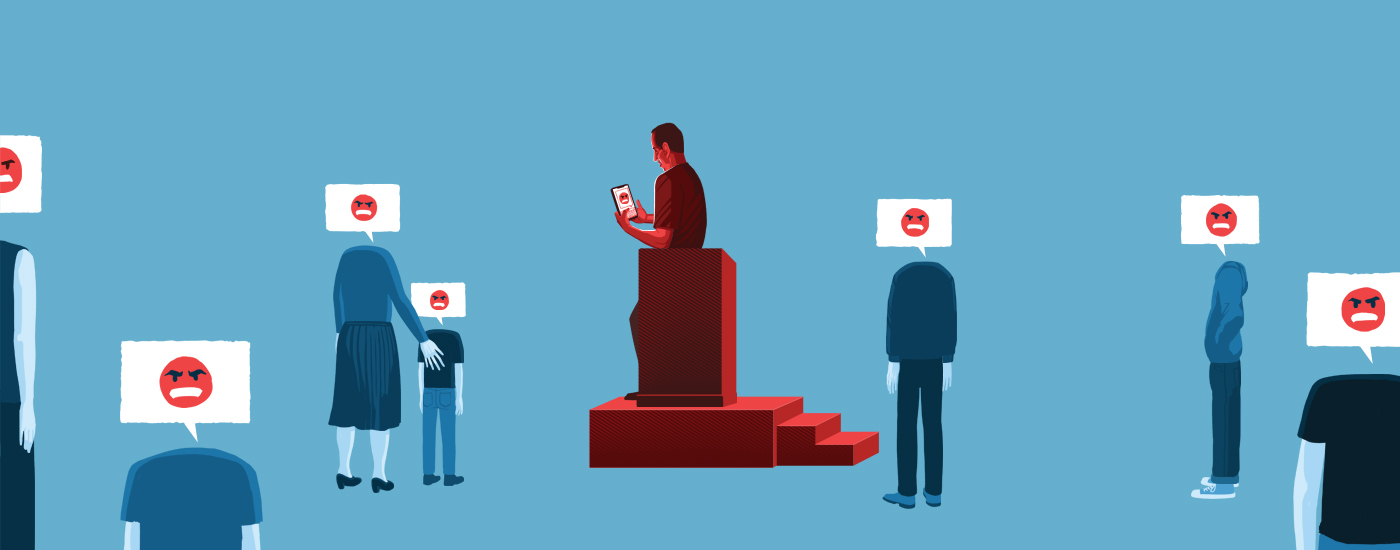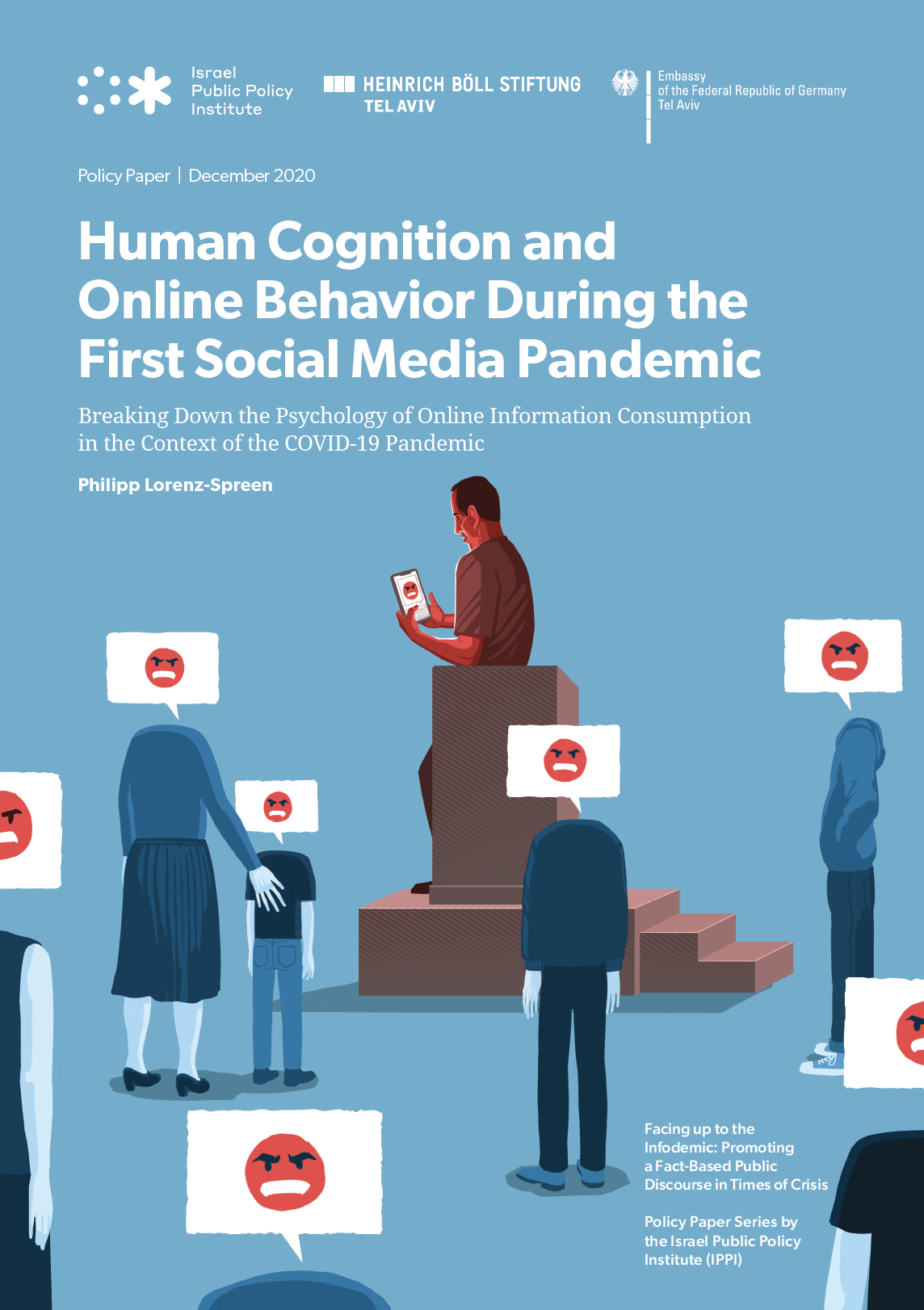Human Cognition and Online Behavior During the First Social Media Pandemic

Share this Post
Accelerated Information Consumption on Social Media Throughout the COVID-19 Pandemic
The COVID-19 pandemic is the first pandemic that has been covered by not only broadcasters and public health authorities, but also various social media platforms. These platforms filter, curate, and pre-select information, and have played a crucial role in the dissemination of information surrounding the pandemic. The rapidly accelerating process of information consumption, due to the abundance of information, news sources, shifting news cycles and platforms’ self-interest exceed the attention capacity of individuals.
This policy paper examines how the increasing pressure to choose, trust, and share information merges with social media platforms’ design and structure. There are three consequences in particular that will be scrutinized:
- Information consumers depend on algorithmic curation, which is utilized to serve the engagement-driven business models that drive most online platforms.
- The pandemic has created the need for information which social media provides, despite the fact that social media is not always a reliable source.
- Communities of well-connected individuals and hubs or influencers are liable because they can become breeding grounds for conspiracy theories, and influencers can easily spread information on subjects for which they are not experts.
Policy recommendations
- Labelling influencers and calling on them to be more transparent about their sources and meet journalistic standards.
- Improve social signals and metrics on social media that can put factual claims into perspective.
- Require social media feeds to have a design that includes cues for evaluating information, for example clearly classifying posts or marking the quality of a piece of information.
- Promoting media literacy as a skill through interventions that can be carried out on social media platforms that can teach individuals simple strategies for evaluating online information.
————————————————————————————————————————————————–
The Israel Public Policy Institute (IPPI) serves as a platform for exchange of ideas, knowledge and research among policy experts, researchers, and scholars. The opinions expressed in the publications on the IPPI website are solely that of the authors and do not necessarily reflect the views of IPPI.
Download Full Publication
Human Cognition and Online Behavior During the First Social Media Pandemic

Share this Post

Artificial Intelligence and Democracy
Over the course of the last decade, there has been an enormous interest in artificial intelligence (AI). Due…

Sustainable Safety: The Dutch Approach to Safe Road Design
The way in which roads are designed correlates directly with how safe they are for all road users.…

What is Greenwashing?
Authors: Nicole Stein & Christoph M. Abels With the increasing public awareness of climate change and environmental degradation,…
